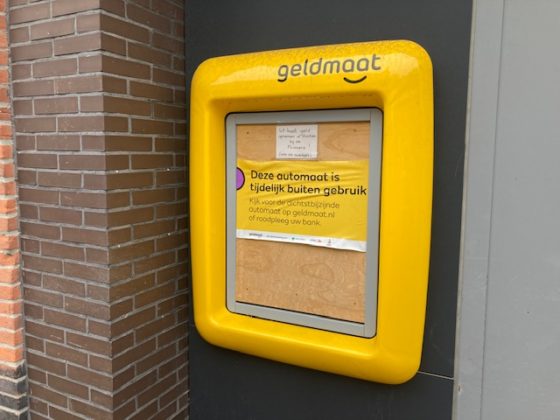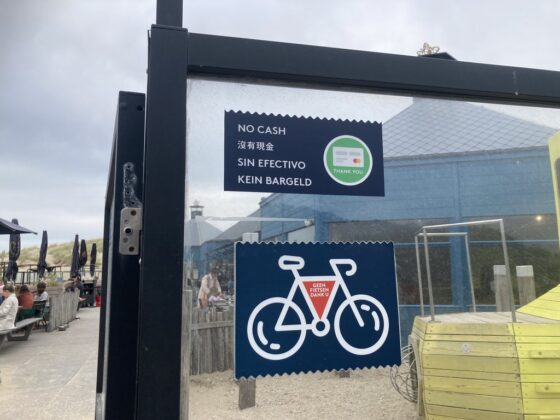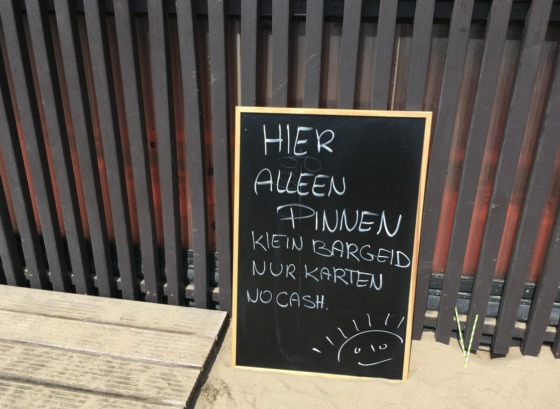The big election issues: tax, income and the cost of living

The Netherlands goes to the polls on October 29 to elect a new government. We asked you what issues you wanted us to cover, and the cost of living was your number one concern.
Rising living costs were one of the main themes of the last election, which followed the coronavirus pandemic and the outbreak of war in Ukraine, which triggered a surge in inflation. Energy prices in particular shot up, prompting the government to invest heavily in a price capping scheme.
In 2025 inflation has fallen but remains relatively high at more than 3%, leaving many households struggling to make ends meet. The parties have very different ideas about how to help pay them pay the bills. Left-wing parties favour raising wages and benefits, while those on the right say low taxes are the best way to reward working families. Geert Wilders’ PVV is in favour of a direct cap on grocery store prices.
Housing costs have also risen sharply in recent years, both for tenants and people looking to buy a home. Some parties want to bring in direct rent controls while others call for more affordable housing to be built. The VVD is vehemently opposed to any changes to mortgage income tax relief, but most of its potential coalition partners say the measure should be phased out.
Parties also have different plans to prevent energy costs spiralling again, either by speeding up the transition to renewables or investing in other sources such as nuclear power. The PVV want to establish a ministry for affordable energy while JA21 controversially advocate reopening the Groningen gas fields.
CDA: Simpler taxes and benefits
The Christian Democrats propose a simpler system of taxes, benefits and social security payments to make household budgets more manageable. Allowances would be calculated and paid out directly to prevent fraud and avoid hefty repayments. All benefit contributions and payments would be made on the same day of the month. Childcare would be “virtually free” for all but the highest earners and paid directly to nurseries.
The CDA would reform the tax rules for joint households so couples are no longer penalised for moving in together. New parents will have a shared period of leave that they can divide up to suit their circumstances. Child benefits would be increased and include additional funding for low-income families, which is currently paid separately.
The party plans to phase out mortgage interest tax relief to fund income tax cuts, benefiting both homeowners and tenants. Short-term tenancies would be permitted to tackle the shortage of rental flats, especially for students. Property prices will be taken into account when setting rental values to ensure high-value areas remain affordable.
Unlike in previous elections, the CDA is not in favour of cutting the excess charge in health insurance, but patients with high healthcare costs would receive extra support.
D66: Affordable green energy
Affordable green energy is one of D66’s five key pledges for the election campaign. The party wants to cut gas imports and develop more wind and solar energy in the Netherlands – as well as nuclear if necessary. It would revive subsidies for electric vehicles and help households become more energy efficient. Emergency funding for households in fuel poverty would be expanded.
D66 says the minimum wage should be increased, without specifying a rate, and paid at the full rate from the age of 18. The lower rates of income tax would be reduced and full-time workers – defined as anyone working at least four days a week – will receive a tax cut worth at least €600 a year.
Mortgage rules would be changed to make it easier for young people to buy a house if the cost of renting is higher. The party also wants to phase out mortgage interest tax relief.
D66 favours keeping the annual “own risk” deductible for health insurance at its existing level of €385, but with a limit of €150 per treatment. People with chronic illnesses or long-term conditions with high costs would pay a reduced rate. Dental checks would be included in the basic compulsory insurance package.
The party wants to introduce a transport pass allowing people to travel off-peak across the network of buses, trams, trains and metros for a low fixed rate. Car tax would be replaced by a per-kilometre levy. Air travel would be taxed by a “fair and effective” system with multiple tax rates.

PVV: Capped grocery bills
Geert Wilders has extensive plans to cut rents, food bills and healthcare costs. He plans to reduce VAT on energy from 21% to 9%, cut the tax altogether for groceries and pass a law setting maximum prices for essential food and household items. Rents in social housing would also be cut by 10% to correct for a 30% rise in recent years.
The ministry for climate and green growth would be replaced by a Ministry for Affordable Energy and no longer fund sustainable energy schemes such as wind and solar farms, or what Wilders calls “CO2 nonsense”. The Netherlands would drill for oil and gas in the North Sea and stop exporting energy to keep prices down. There would also be more investment in nuclear power.
In healthcare, the PVV would scrap the deductible “own risk” component in basic health insurance, which has been fixed at €385 for years, and invest €600,000 in the sector. Care workers and carers who want to work extra hours would receive a bonus.
Wilders says he will fund the measures by raising VAT on art and culture to 21%, abolishing the public broadcaster NPO and cutting spending on asylum and international development as well as the Netherlands’ EU budget contribution.

JA21: Restart gas production
The hardline conservative party has few direct measures to reduce living costs, putting its faith instead in tax cuts and market forces. Energy sources should be chosen on the basis of affordability rather than sustainability: JA21 is committed to building at least four nuclear power stations and, most controversially of all, restarting gas production in Groningen.
Motorists will benefit from JA21’s commitment to “retain the freedom to use a car”, with lower fuel taxes, no distance-based reform of road tax or rush-hour surcharges, and no phasing out of petrol and diesel cars. Its manifesto says the party will abolish airport tax, but in the figures submitted to the economic analysis bureau it called for the levy to be retained at its current level. JA21 also plans a modest annual investment in public transport equivalent to 0.04% of GDP.
JA21 wants to cut benefits and childcare allowances, arguing lower taxes are a better way to support working families. Taxes on wealth would also be reduced to make saving and investing more attractive. The party would also introduce a package of financial incentives and “creative financial models” to make the housing market more accessible to young families and first-time buyers, including a right-to-buy scheme.

VVD: Boost working families
The VVD’s manifesto pledges to support businesses and hard-working families, but the liberal party also says some benefits should be cut and social security should no longer rise in step with the minimum wage. It wants to pass a law guaranteeing that people in work always see their spending power rise faster. A “benefits ceiling” would be introduced limiting the total amount each household can receive.
The VVD strongly supports mortgage interest tax relief for homeowners and has pledged to block any plans by other parties to scrap it. It would repeal the Affordable Rent Act but oblige housing corporations to build more affordable rental homes. Housing benefit would be replaced by a subsidy for social landlords so they can cut rents.
Energy bills would be cut in the short term by cutting energy tax and in the long term by stimulating sustainable energy, better home insulation and tripling nuclear power capacity by 2050. The party wants to look at introducing a lease system for alternatives to gas heating such as heat pumps and solar panels.
The VVD says the cost of groceries could be brought down by abolishing rules that prevent supermarkets from buying products more cheaply from abroad. Fuel taxes would be cut for motorists and duty on alcohol and tobacco would be frozen. Travel to work allowances should rise in line with inflation.
The basic healthcare package should be trimmed and the “own risk” excess charge retained to bring down the cost of the annual insurance premium. The cost per treatment would be cut and measures taken to tackle fraud and inefficiency.

GL-PvdA: Raise the minimum wage
The left-wing alliance plans to raise wages through binding pay deals and reform taxes so that lower earners pay less while higher earners and investors pay more. The minimum wage would be raised to €18 an hour and pegged in future at 60% of median pay. State pensions and welfare benefits would rise in step with the minimum wage. Taxes should be reduced on earnings and increased on wealth.
The party wants to expand social housing so that all but the top one-third of earners qualify for affordable rental homes. GL-PvdA says the target of 100,000 new homes a year should include 40,000 with a maximum rent of €900 a month and another 40,000 capped at €1,200 a month or a maximum price of €405,000. Rents would not be allowed to increase faster than wages.
Mortgage interest tax relief would be phased out and the profits invested in new housing and tax cuts. A starters’ fund would fund the first 30% of purchases by first-time buyers, to be repaid when the house is sold.
GL-PvdA would cut energy bills by reducing net tariffs and invest in insulating homes. Tenants living in energy inefficient homes would be entitled to a rent reduction. The government should invest in affordable clean offshore wind energy rather than nuclear power.
The party wants to introduce a €59 monthly ticket for unlimited off-peak travel and cut health insurance premiums by funding more healthcare centrally. The “own risk” element of healthcare would be phased out. Childcare would be free and child benefits increased.
Earlier in this series:
Thank you for donating to DutchNews.nl.
We could not provide the Dutch News service, and keep it free of charge, without the generous support of our readers. Your donations allow us to report on issues you tell us matter, and provide you with a summary of the most important Dutch news each day.
Make a donation